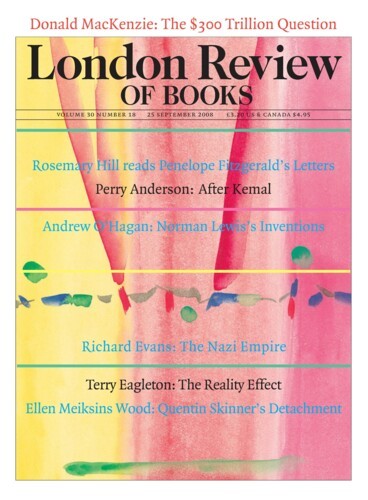Exit Humbug: Theatrical Families
David Edgar, 1 January 2009
Ellen Terry was the youngest daughter of two touring players, and began her own stage career at the age of six. Ten years later, she married a painter three times her age; they separated within ten months. Three years after that, she took up with the architect Edward William Godwin. They did not marry, but had a daughter and son together, and the expense of their upkeep drove her back to the...




